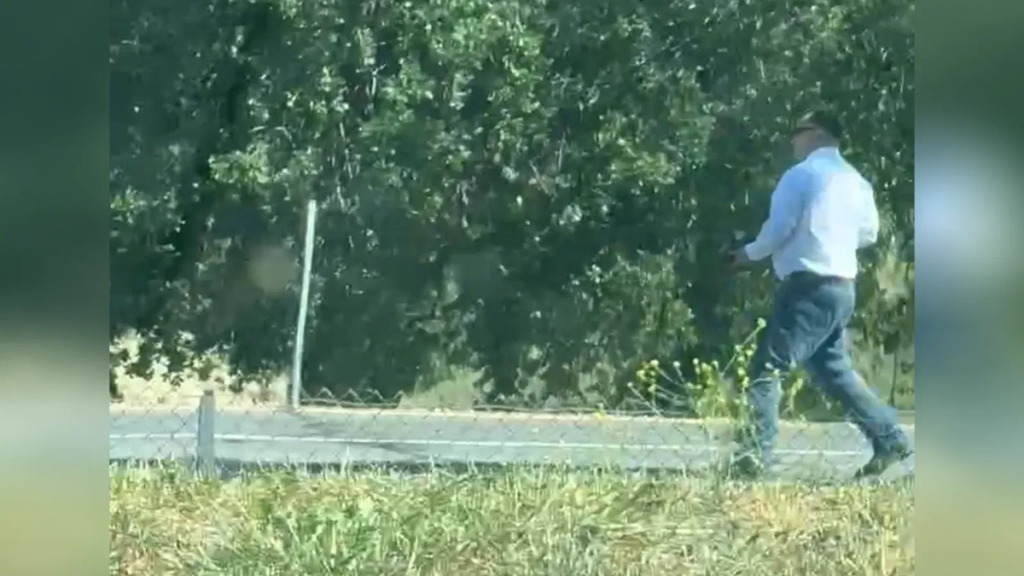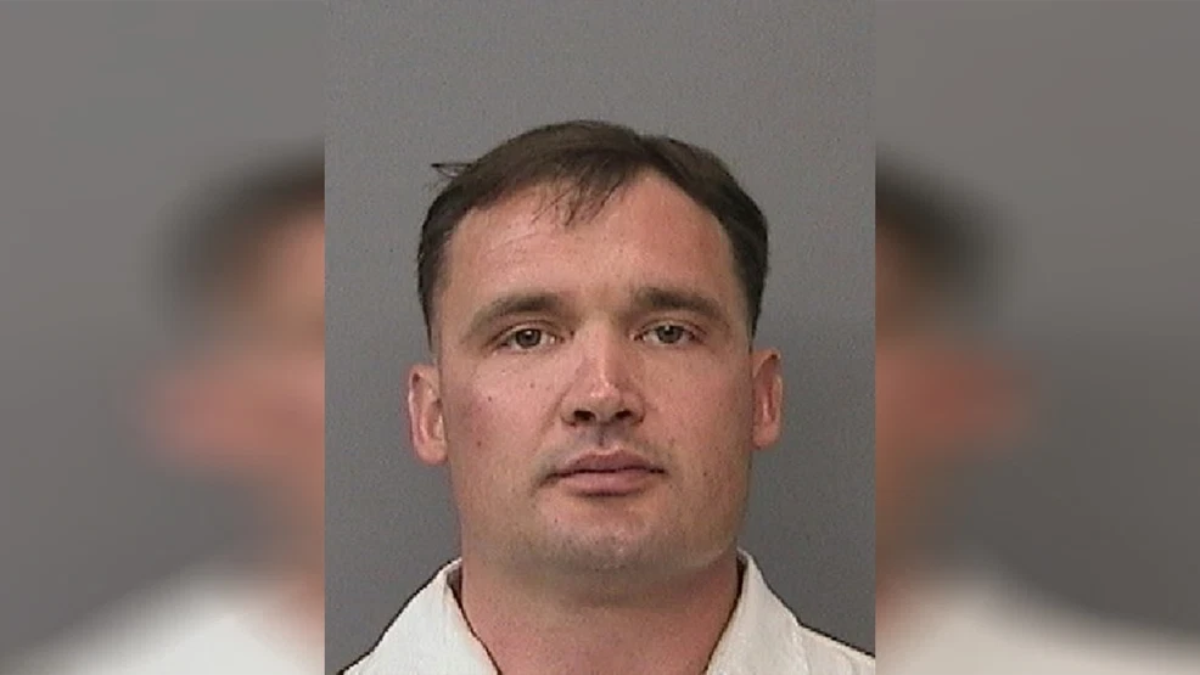REDDING, Calif. — A traffic stop in Shasta County has sparked serious concerns about public safety and mental health issues within the criminal justice system after a local man allegedly pointed an AR-15-style rifle at a California Highway Patrol (CHP) officer.
The suspect, 34-year-old Jeffrey Dean Bembry of Shasta County, is currently undergoing a court-ordered mental competency evaluation, delaying further legal proceedings in a case that has drawn both community concern and legal scrutiny.
Traffic Stop Turns Dangerous
The incident occurred on May 6, 2025, when CHP officers conducted what began as a routine traffic stop near Redding, California. Officers reportedly observed a vehicle speeding and initiated a stop.
However, events quickly escalated when the driver, later identified as Bembry, allegedly exited his vehicle and pointed an AR-15-style rifle directly at the approaching officer.
Instead of complying with commands, Bembry reportedly fled the scene in his vehicle, initiating a high-speed pursuit through local roads.
The chase concluded when officers successfully disabled Bembry’s vehicle. He was taken into custody without further resistance. Fortunately, no injuries were reported during the confrontation.

Serious Charges Filed
Following his arrest, Bembry was formally charged with several felony offenses that reflect the severity of the incident. These include:
- Two counts of assault with a semiautomatic firearm upon a peace officer
- Two counts of exhibiting a firearm in the presence of an officer
- Possession of an assault weapon
- Fleeing a pursuing peace officer’s motor vehicle while driving recklessly
These charges carry significant legal consequences under California law, including the possibility of lengthy prison sentences if Bembry is ultimately convicted. The use of a semiautomatic weapon in an alleged assault on law enforcement is particularly serious, with state laws mandating enhanced penalties in such cases.
Mental Competency Questioned
Bembry appeared in Shasta County Superior Court on May 20, 2025, but the proceedings were quickly delayed. Concerns were raised regarding his mental competency to stand trial, prompting the court to order a full psychological evaluation.
Under California law, defendants must be mentally competent to face trial. This means they must be able to understand the nature of the criminal proceedings against them and be capable of assisting their defense attorney in a rational manner.
If a defendant is found to lack this capacity, court proceedings cannot continue until competency is restored through medical or therapeutic means.
Bembry’s next scheduled court appearance is set for June 24, 2025, at 8:30 a.m., when the results of the evaluation will be reviewed. The court will determine whether the legal process can proceed or whether Bembry will require treatment before facing trial.
Legal and Mental Health Context
The issue of mental competency is a vital safeguard within the criminal justice system. It ensures that individuals are not prosecuted or punished without the ability to understand the charges or participate in their own defense.
If Bembry is declared incompetent, he could be committed to a state mental health facility where treatment would aim to restore his ability to stand trial.
This process can be lengthy and depends on the individual’s response to treatment. Restoration can involve psychiatric medication, therapy, and regular court evaluations.
Only once competency is determined to be restored can the trial resume. In some cases, defendants can remain in mental health custody for months or even years.
This aspect of the case highlights growing concerns over the intersection of mental health and criminal behavior, particularly in incidents involving weapons and public safety.
Law Enforcement and Community Response
The California Highway Patrol has emphasized the dangers law enforcement officers face on a daily basis—even during what appear to be routine stops. “Our officers are trained to expect the unexpected,” a CHP spokesperson said.
“This incident serves as a stark reminder of the risks involved in traffic enforcement and the need for ongoing support and resources for officers on the front lines.”
The Shasta County Sheriff’s Office echoed these sentiments, expressing a commitment to community safety. “We take these situations very seriously,” a spokesperson said. “Our priority is the safety of our residents and ensuring the legal process is followed fairly and effectively.”
Local residents, meanwhile, have expressed concern and unease about the events, especially given that the situation escalated from a simple traffic stop to a high-speed chase involving a firearm.
Many are seeking reassurance that authorities are taking appropriate steps to address any risks to public safety and to ensure the accused receives any necessary mental health intervention.
What Comes Next
As the legal process pauses to assess Bembry’s mental health, the case raises broader questions about how the justice system should respond to defendants who may be suffering from psychological issues. The outcome of the court-ordered evaluation will determine the immediate future of the case.
If Bembry is found competent, proceedings will move forward toward arraignment and possibly trial. If he is found incompetent, he may be placed in a treatment program until he is considered able to participate in his defense.
Bembry remains in custody at the Shasta County Jail as he awaits his next court appearance. The community, law enforcement, and the legal system now stand by to see whether the trial will proceed—or whether further intervention will be needed before justice can be served.
For updates on this developing story, visit KRCR News.
Disclaimer – Our team has carefully fact-checked this article to make sure it’s accurate and free from any misinformation. We’re dedicated to keeping our content honest and reliable for our readers.
